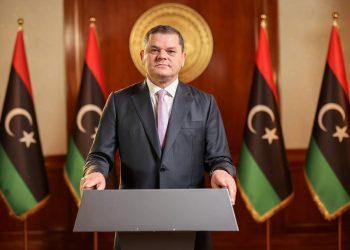By Nigel Ash
Tripoli, 7 June 2013:
The Political Isolation law, which came into force on Wednesday, should be applied with “restraint and . . .[restrict]transparency”, and be administered by the judiciary, said the human rights pressure group Lawyers for Justice in Libya.
LFJIL, bitterly condemned the legislation as it passed through the General National Congress, on the grounds that it violated human rights and was an impediment to reconciliation.
“The exclusion of anyone from holding political or public office must be done on the basis of criminal acts proven in a court of law,” said LFJL Director Elham Saudi, “and not on the basis that such a person was merely associated with the previous regime,”.
LFJL has argued that the vagueness of the law’s drafting will inevitably lead to abuse, without the safeguard of proper judicial processes.
The pressure group has warned that the amendment to the Constitutional Declaration that denies any judicial review of the political isolation legislation, both further violates the rights of Libyan citizens and undermines the separation of powers between the legislature and the judiciary.
Without allowing the law to be challenged on constitutional grounds, individuals do not have a meaningful basis on which to defend themselves from decisions made under the PIL.
Nevertheless, since the law is now in force LFJL is insisting that it be used to exclude those suspected of criminal activities, rather than as a punishment based on political beliefs.
“It should not be used as a means of revenge against former regime officials and political adversaries” said Saudi. “Arbitrary application of the law would violate Libya’s constitutional declaration and also breach the country’s international human rights obligations.”
She continued: “Libya’s long-term prospects for peace, security and national reconciliation heavily rely upon the state acting in good faith. If the law is used to exclude specific actors or groups within society, this will not only infringe on citizens’ rights of political participation, freedom of expression and due process, but may undercut the legitimacy of the government in the long-term and further deepen societal divides.”
JFIL also warned that the law must not be manipulated for political reasons. The only way to avoid this will be to ensure that the PIL is applied independently and transparently by the courts. This, it maintained, would make accountable those who had committed while respecting the fundamental right to due process.
”We strongly call on the Libyan executive to exercise restraint where its legislators did not, and to apply this law in a manner consistent with human rights and with a view to national reconciliation” added Saudi.
[/restrict]







